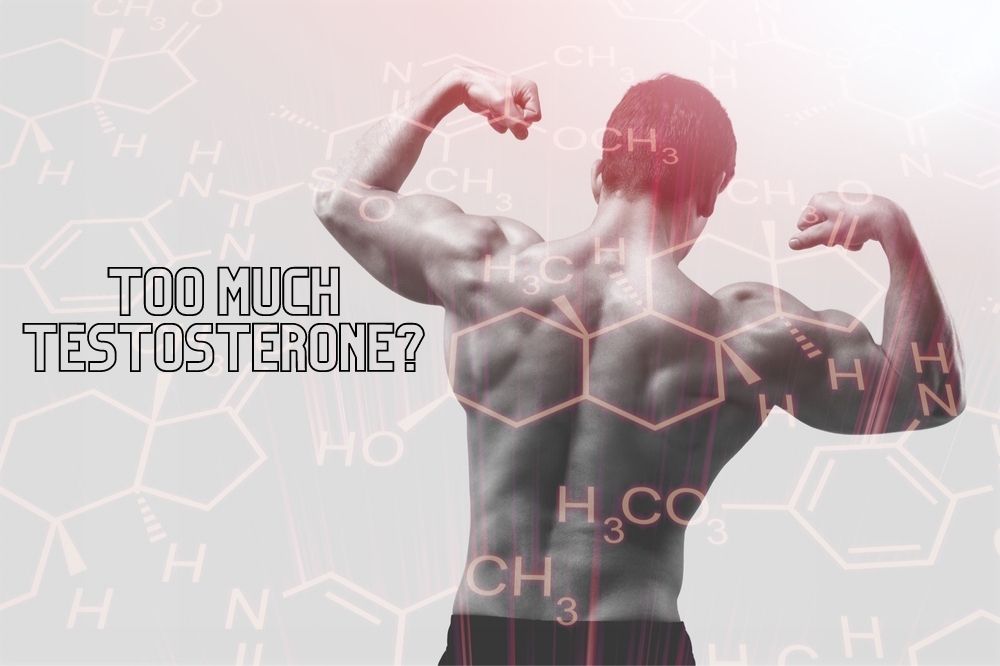
What Does High Testosterone Do to a Man?
Signs of High Testosterone in Men
Low testosterone levels are often a topic of discussion. We know that men who have a low testosterone level feel much better once testosterone is supplemented. But is there a risk of taking too much testosterone? And could high testosterone cause problems? Let’s discuss the risks of testosterone treatment and how to make sure you are getting the right amount.
The Role of Testosterone
Testosterone levels are essential for many different reasons. Testosterone levels can begin to decline as early as age 25-30 and will continue to slowly decrease throughout a man’s life. Testosterone is primarily produced in the testicles but also in small amounts through the adrenal glands.
Testosterone affects men’s appearance and sexual development. It stimulates sperm production, drives libido, and builds muscle and bone mass. Normal levels of testosterone are protective against diabetes, heart problems, hypertension, cancer, and obesity. When testosterone levels are optimal, it is easier to maintain a normal balance of muscle mass. Testosterone impacts the production of muscle mass and the storage of fat.
Symptoms of Low Testosterone
How do you know if your testosterone levels are low? The best way is to have your levels checked through laboratory testing, but symptoms you may experience include:
- Reduced sex drive
- Fatigue
- Decreased lean muscle mass
- Irritability or mood changes
- Erectile dysfunction
If you have low testosterone, there are several ways to treat it. Your provider may recommend injections or testosterone pellets. While you are receiving testosterone therapy, you will have your testosterone levels checked periodically.
Symptoms of high testosterone
Unfortunately, too much of a good thing can cause problems. If you begin to build up testosterone, you may experience some unpleasant symptoms. These include:
- Aggressive or irritable mood
- Oily skin and acne
- Worsening sleep apnea
- Increased muscle mass
- Lowered sperm count
- Testicle shrinkage
- Elevated cholesterol
- Blood pressure changes
- Overproduction of red blood cells
- Blood clots
- Heart attack
High testosterone can result from too high a supplement dose, but there are a few other reasons for testosterone to be too high. Testicular or adrenal tumors (even those that are non-cancerous) may raise testosterone levels too high. Steroid use or abuse can elevate testosterone levels too high. Some men may have a genetic predisposition that causes higher levels of testosterone.
Treatment of testosterone that is too high
The first measure to take for testosterone levels that are too high is to eliminate any external sources of testosterone. Stop taking anabolic steroids. If you are on a testosterone supplement, work with your healthcare provider to adjust the dose to bring your testosterone level back into the normal range.
If high testosterone has caused overproduction of red blood cells, your healthcare provider may ask you to donate blood or undergo a therapeutic phlebotomy procedure to lower your red blood cell count.
Maintain the perfect level
Regular follow-up with your healthcare provider will ensure that your testosterone levels remain in the optimal range. Vitality Aesthetic and Regenerative Medicine will carefully measure your testosterone levels and adjust your testosterone dose to ensure hormone balance.

